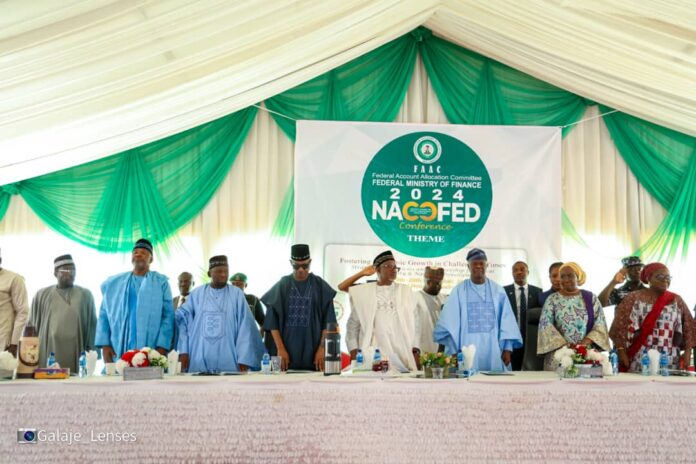By; Mohammed Kawu, Bauchi
The Minister of Finance and Coordinating Economy, Dr Adebayo Olawale Edun has expressed delight that crude oil is now not only been shipped abroad, but also being refined locally to give row materials to the nation’s industries.
Dr. Adebayo Edun also said that oil subsidy removal by the Tinubu-led administration has cleared the country’s road for private sector investment, as well as putting Nigeria back to the business of industrialization.
The fuel subsidy removal, the minister said, has similarly increased flow of resources into the federation account, vis-a-vis federal, states and local governments, while doing more in terms of investment not just to infrastructure, but also social services such as education and health, among others.
Minister Edun was speaking while declaring opened the conference of National Council on Finance and Economic Development (NACOFED) Monday in Bauchi where he urged the forum to consider the finances of federation, as well as the economic development at the wards, local government areas, states and federal level.
Edun told conference which coincided with the Federation Account Allocation Committee (FAAC) meeting that the removal of fuel subsidy by the Tinubu-led administration has similarly halt the bleeding that was costing five percent of Growth Domestic Products (GDP) of the country every year.
“We should be encourage that we are now having a more stable and sustainable microeconomic environment that is friendly to investors which made it possible for them not only to produce competitively for the domestic markets, but also to export thereby conserving the country’s foreign exchange earnings”.
Minister resorted, “The medium microeconomic reforms are in place. His Excellency, President Bola Ahmed Tinubu has stop the bleeding and m-ridging that was costing five percent of the country’s Growth Domestic Products (GDP), 5% of wealth of the country”.
The Minister further told the conference with the theme, “Hosting Economic Growth At Challenging Times, Strategies, Effective Policies and Partnership Physical Sustainability And Growth”
that the hitherto 5 percent of the Nigeria’s wealth was every year going wastely.
He described the fuel subsidy as hardshal that was beneficial to just a few at the detriment of majority Nigerians, saying some neighbouring counties and other related foreign exchange also benefitted with the fuel subsidy.




